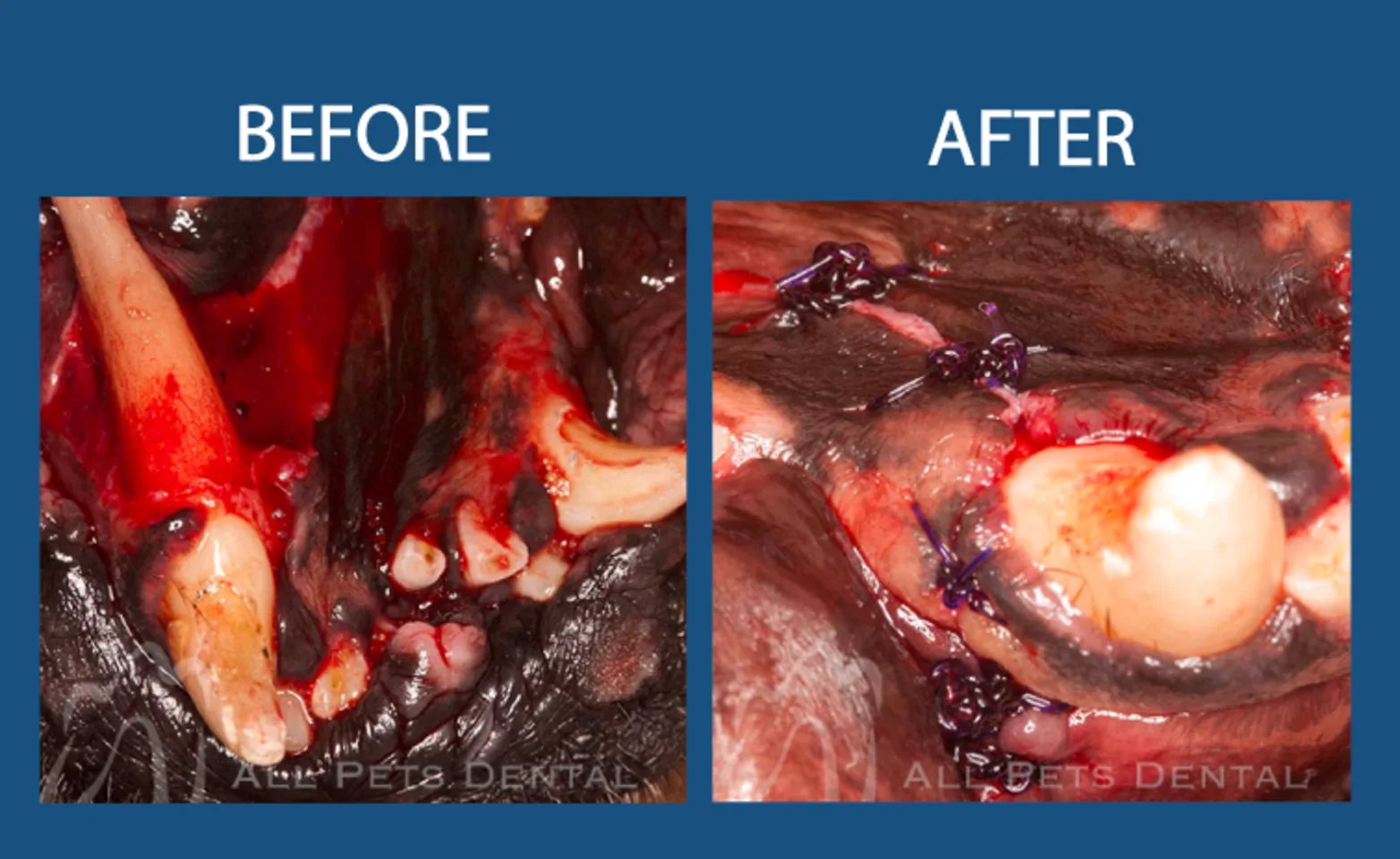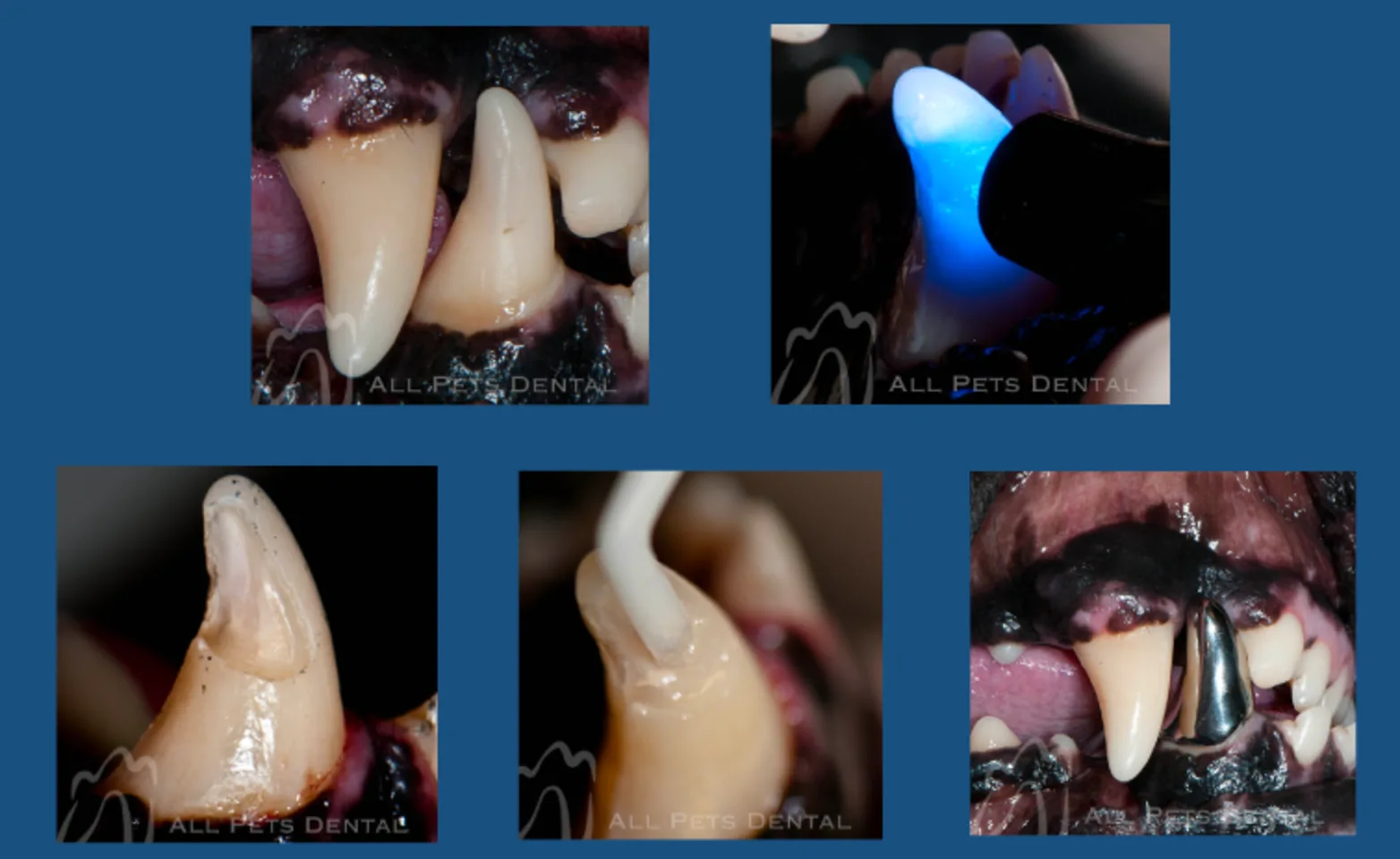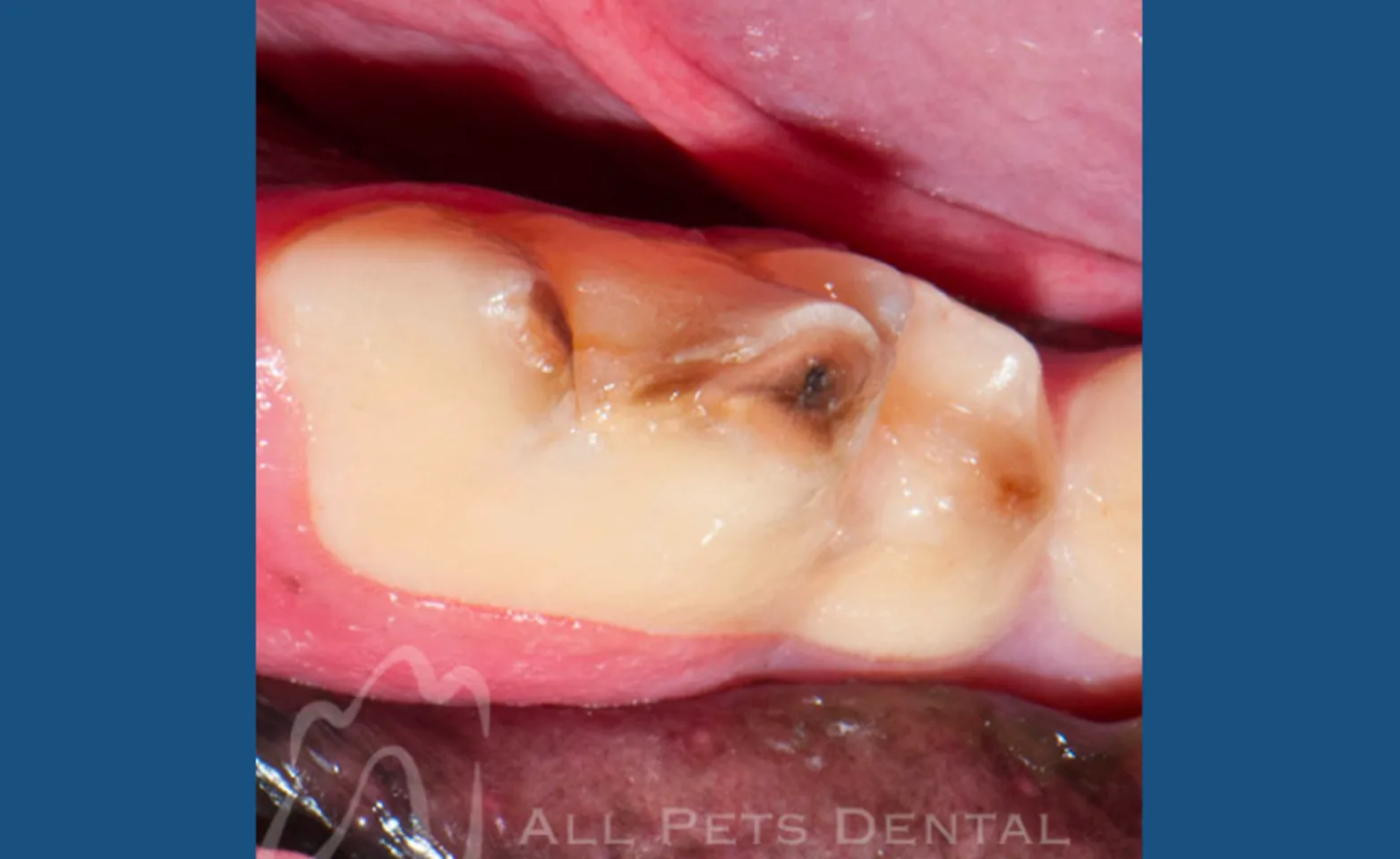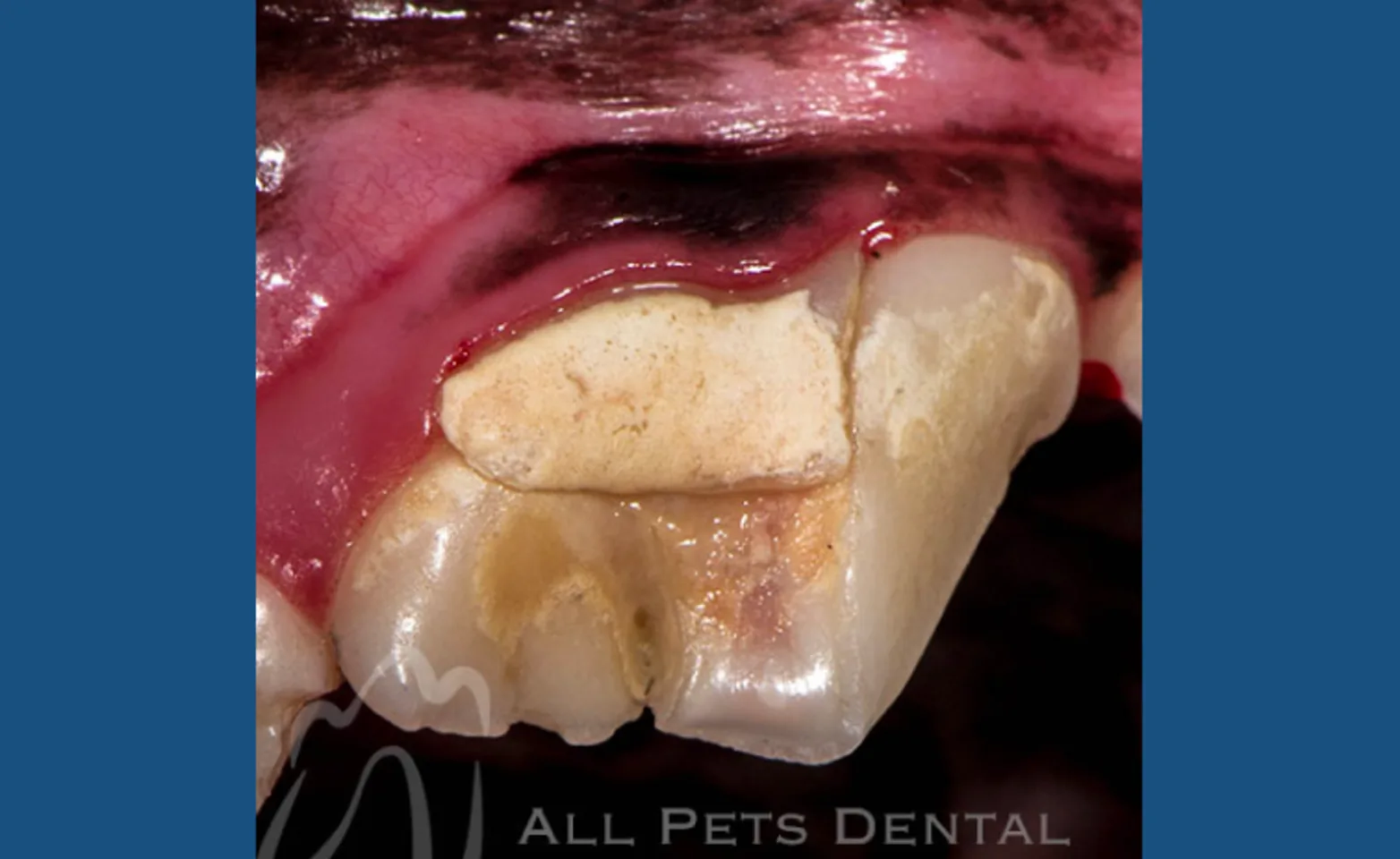Hometown Animal Hospital

Canine Trauma/Broken Teeth/Jaw

How do animals fracture their teeth?
Commonly from chewing on cage doors, airplane crates, or chain-link fences. Also implicated are hard chew toys, ice cubes, and horse hooves. Auto accidents, aggressive Schutzhund training, and dog fights can additionally lead to fractures.
In the mature dog or cat, the maxillary canines are most commonly broken, followed by the mandibular canines, the maxillary fourth premolars, and incisors. In the immature dog, deciduous canine teeth commonly fracture.

What happens to a tooth when a break occurs?
The lesions that develop vary depending on how much of the nerve is exposed. Many times a tooth fracture will occur that does not enter the pulp chamber and only the enamel or dentin is affected. Even so, trauma that caused the enamel and dentin to fracture may be sufficient to cause pain and hemorrhage that can lead to inflammation and tissue destruction. Bacteria can enter the tooth through the exposed nerve causing problems ranging from internal inflammation to severe infection.

Lower Canine Tooth Dislocation Due to Dog Fight
Before & After Surgery
Immediate care is necessary to save the tooth.

Treatment of a Broken Tooth
Therapy decisions depend on which parts of the tooth are exposed. Intraoral x-rays are needed for evaluation. If the fracture involves only enamel, the treatment of choice is to smooth the sharp edges. If the fracture involve the tooth's nerve then either root canal therapy or extraction is needed.

What happens to a tooth when a fracture occurs?
The lesions that develop vary. Many times a tooth fracture will occur that does not enter the pulp chamber and only the enamel or dentin is affected. Even so, trauma that caused the enamel and dentin to fracture may be sufficient to cause direct vascular damage and hemorrhage that can lead to inflammation and tissue destruction. Bacteria can then move in through anachoresis (the process of bacteria lodging in an area of previously damaged tissue), causing a myriad of problems ranging from internal inflammation to an apical abscess.

Uncomplicated Crown Fracture
Uncomplicated crown fractures do not directly expose the tooth’s pulp (nerve). Nonetheless the tooth may be sensitive and should be treated.

Complicated Crown Fracture

